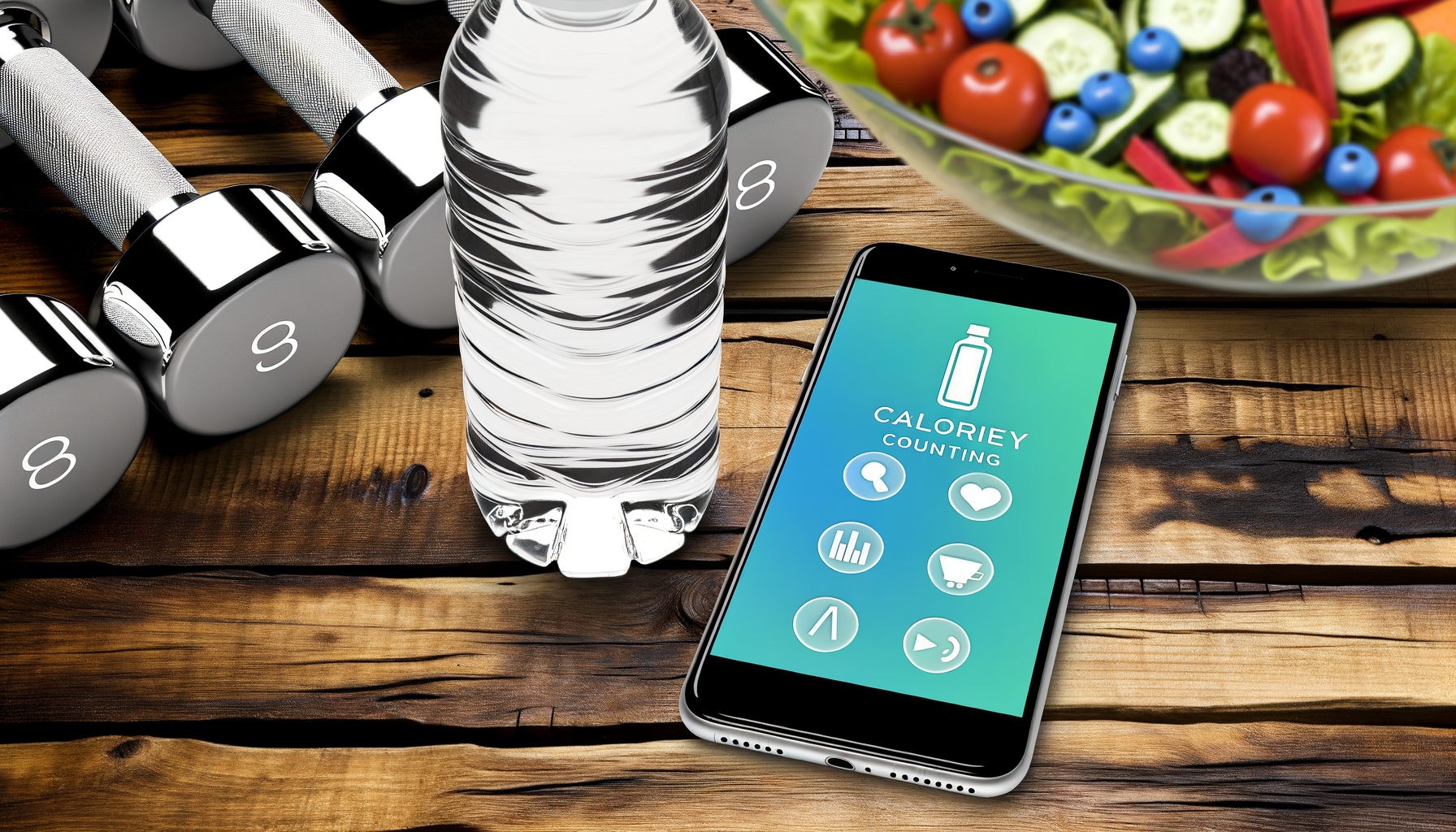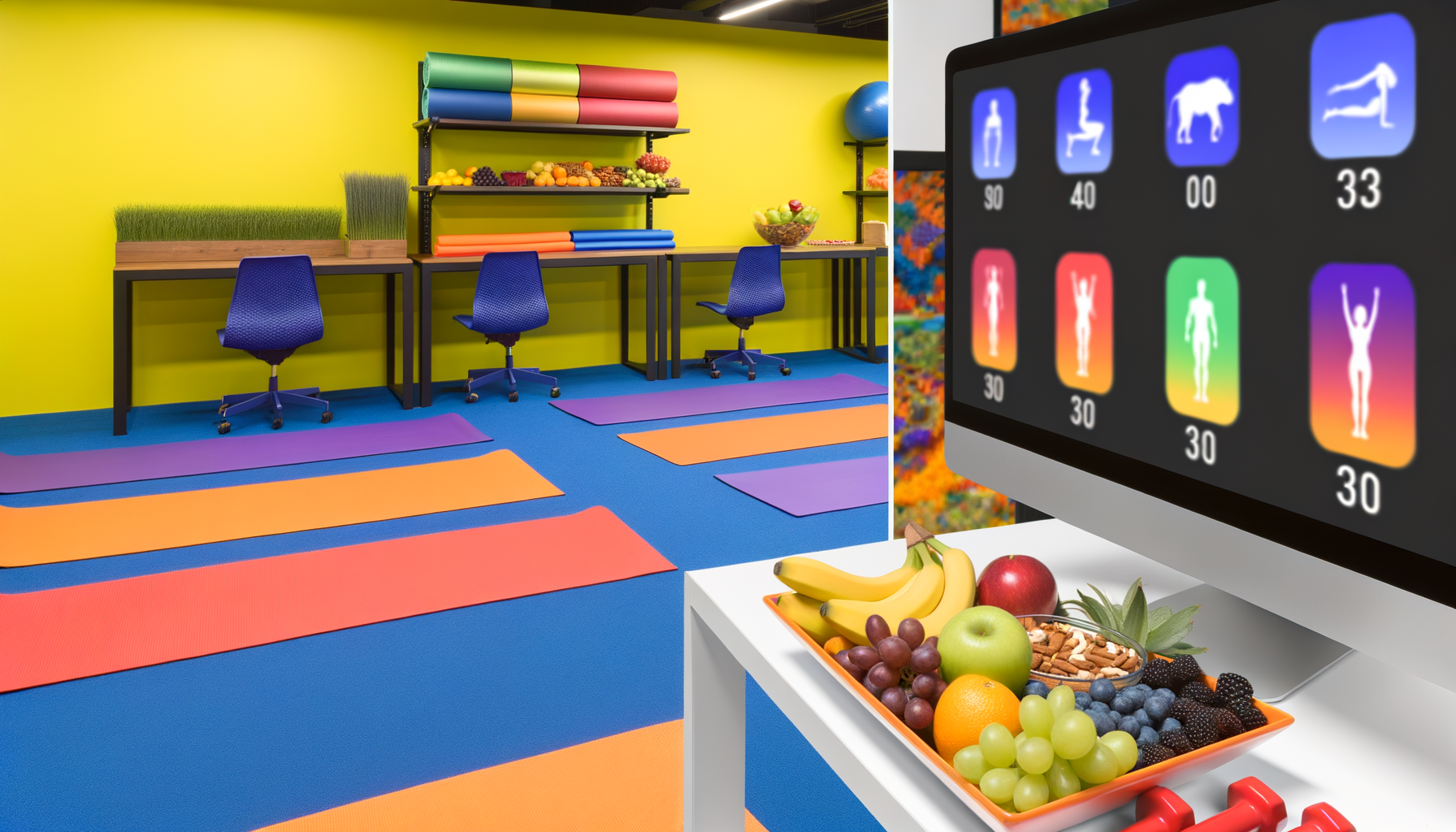The Role of Calorie Tracking in Anti-Aging Fitness Programs
Unlocking the Secrets of Calorie Tracking for Anti-Aging Fitness
When it comes to anti-aging fitness programs, one of the most effective and often overlooked tools is calorie tracking. This method, while commonly associated with weight loss, has a profound impact on overall health and longevity. In this article, we will delve into the role of calorie tracking in anti-aging fitness, exploring its benefits, potential pitfalls, and how to incorporate it effectively into your fitness regimen.
The Science Behind Calorie Tracking and Anti-Aging
Calorie tracking is rooted in the principle of energy balance, where the number of calories consumed is compared to the number of calories expended. This balance is crucial for maintaining optimal health and can significantly influence the aging process. Research has shown that calorie restriction (CR), which involves reducing dietary intake below energy requirements while maintaining optimal nutrition, can attenuate aging by reducing oxidative stress and improving metabolic function.
Studies such as those conducted by the Comprehensive Assessment of Long-term Effects of Reducing Intake of Energy (CALERIE) team have demonstrated that CR can lead to improvements in healthspan and lifespan. These improvements include reduced body weight and fat mass, decreased systemic inflammation, and enhanced insulin sensitivity, all of which are key factors in mitigating the effects of aging.
How Calorie Tracking Supports Anti-Aging Fitness
Calorie tracking can support anti-aging fitness in several ways:
**Energy Balance**: By ensuring that you are in a calorie deficit or balance, you can prevent excessive energy storage as fat, which is associated with various age-related diseases such as diabetes and cardiovascular disease[5>.
**Optimal Nutrition**: Calorie tracking helps in maintaining optimal nutrition by ensuring that you consume the necessary macronutrients and micronutrients. This is crucial for supporting cellular health and reducing oxidative stress[5>.
**Physical Activity**: Tracking calories also encourages monitoring of physical activity, which is essential for maintaining muscle mass, strength, and overall physical fitness. These factors are critical in the prevention of secondary aging[5>.
**Behavioral Accountability**: Calorie tracking keeps you accountable for your daily food choices and physical activities, helping you maintain a consistent and healthy lifestyle. This accountability is a key motivator for long-term adherence to anti-aging fitness programs[3>.
Potential Pitfalls and Considerations
While calorie tracking is a powerful tool, it is not without its challenges and potential pitfalls:
**Accuracy of Tracking Devices**: Many wearable devices and apps used for calorie tracking may not provide accurate measurements of energy expenditure. A study by Stanford University found that while these devices accurately measure heart rate, they often significantly misestimate calorie burn[2>.
**Disordered Eating**: There is a risk that intense calorie tracking can lead to disordered eating behaviors, particularly in individuals who are prone to such issues. Research has shown that calorie tracking app users report higher levels of disordered eating compared to non-users[1>.
**Nutrient Deficiencies**: Reducing calorie intake without proper planning can lead to inadequate nutrient intake. It is crucial to ensure that any calorie restriction is done under the guidance of a healthcare professional or a qualified nutritionist[5>.
Practical Tips for Effective Calorie Tracking in Anti-Aging Fitness
To incorporate calorie tracking effectively into your anti-aging fitness program, follow these practical tips:
**Use Reliable Tools**: Choose calorie tracking tools that are known for their accuracy and user-friendliness. For example, the WP Calorie Calculator can be a valuable resource for website visitors interested in health and fitness[3>.
**Set Realistic Goals**: Aim for sustainable calorie deficits rather than extreme restrictions. A balanced approach ensures long-term adherence and reduces the risk of nutrient deficiencies.[5>.
**Monitor Physical Activity**: Along with tracking calories, ensure you are monitoring and maintaining adequate physical activity. This can include a mix of cardio, strength training, and flexibility exercises.[5>.
**Seek Professional Guidance**: Consult with a healthcare professional or a registered dietitian to create a personalized calorie tracking plan that aligns with your health goals and nutritional needs[5>.
Case Studies and Real-World Examples
Several studies and real-world examples illustrate the effectiveness of calorie tracking in anti-aging fitness programs. For instance, the CALERIE trials demonstrated significant improvements in healthspan and lifespan among participants who adhered to a calorie-restricted diet. Similarly, individuals who follow a Calorie Restriction with Optimal Nutrition (CRON) diet have shown remarkable health benefits, including reduced risk factors for cardiovascular disease and type 2 diabetes.
In addition, many fitness enthusiasts and athletes use calorie tracking as a key component of their training regimens. By accurately monitoring their calorie intake and expenditure, they can optimize their performance, enhance recovery, and support overall health and longevity.
Conclusion and Next Steps
In conclusion, calorie tracking is a vital component of anti-aging fitness programs. By understanding the science behind calorie tracking, being aware of potential pitfalls, and following practical tips, you can harness the full benefits of this method to support your health and longevity goals.
If you are interested in incorporating calorie tracking into your fitness regimen, consider using tools like the WP Calorie Calculator Plans to help you get started. Remember to set realistic goals, monitor your physical activity, and seek professional guidance to ensure a balanced and effective approach.
Start your journey towards a healthier, longer life today by embracing the power of calorie tracking in your anti-aging fitness program.











